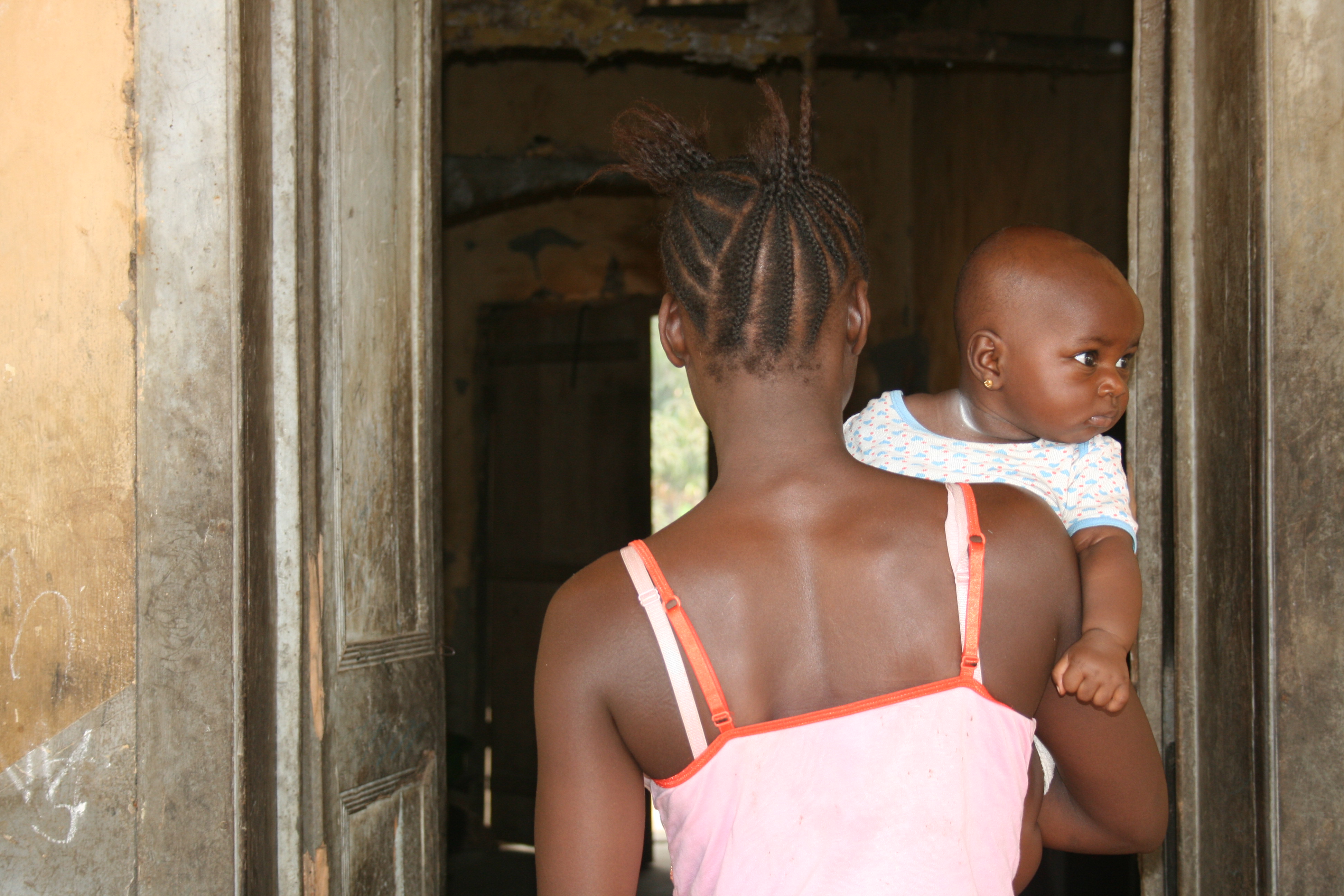Traditional laws have been passed by chiefs in parts of Sierra Leone’s northern Bombali district, among them the Safroko Limba chiefdom, according to Ramatu Kanu, Deputy Director of Education for the district. Bombali district is made up of 13 chiefdoms.
The laws are designed to build stigma around teenage pregnancy and dissuade girls from becoming pregnant, according to Maud Droogleever Fortuyn, child protection director at the UN Children’s Fund (UNICEF) in Sierra Leone.
“In these chiefdoms, when a girl becomes pregnant most boys also drop out. They start doing petty trade, or become ‘okada’ [motorcycle taxi] drivers,” said student John Amadfoma, 17, who attends school in Makeni, the capital of Bombali district, 140km north of Freetown.
High pregnancy and drop-out rates
Just over 40 percent of women, now between the ages of 25 and 29 had their first baby by the time they were 18, and 12 percent of them by age 15, according to the yet-to-be-published 2009 government demographic health survey (DHS).
Most girls drop out of school by age 15, mainly because of pregnancy, Kanu said. Boys tend to drop out by age 16.
Local child protection experts speculate these pregnancies are caused by voluntary sexual relations among school-children, early marriage, transactional sex with adults and other forms of sexual abuse, but UNICEF’s Fortuyn told IRIN no studies have yet been undertaken.
She added that UNICEF plans to research the issue in upcoming months.
Against the ban
“UNICEF is not happy with these [laws] banning pregnant girls and boys who made girls pregnant from school,” Fortuyn told IRIN. “Taking children out of school is against their right [to education].”
“Although we recognise the boy needs to bear responsibility too, this is not the way. Why not make his family responsible for ensuring the girls finish secondary school, for instance?”
Even where laws are not in place, social stigma pressures pregnant girls to leave school as soon as they become pregnant, according to Kanu. “In Sierra Leone when you are a teenager and you are pregnant and unmarried, you are a second-class citizen.”
Hannah*,16, from Makeni, told IRIN she left school when she became pregnant in January 2008. She now has a five-month-old baby. “I watch my friends walk to school every day. I am desperate to join them.”
She said her uncle, who was paying her school fees, withdrew his support when she became pregnant. “Life is not simple for me now. I stay at home alone to care of my baby. My father is very angry with me.”
Hannah told IRIN the child’s father – a student at a different school - has denied responsibility.
Changing attitudes
Teresa Will, 16, is a member of a “Girls Tell Us” club in Makeni, where both male and female students convene to discuss the problems they face- such as what to do when a schoolgirl becomes pregnant.
“Teenage pregnancy and early marriage are the biggest problems girls in Makeni face. The point is not to get pregnant in the first place,” Will said. "We go to schools, we go on the radio, we talk in assemblies, to discuss the issue.”
When a schoolgirl becomes pregnant, club members approach the expectant mother and her family to discuss the potential problems they may face, such as how to support the baby and pay for school fees. So far the club has helped three female students return to school, according to Will.
Club members told IRIN they have seen some attitudes start to change. Amadfoma, one of several male students who joined the club, says he has seen parents of new young fathers agreeing to pay for their baby’s care. “If not, they will sometimes negotiate with the girl’s parents to figure out if they will pay.”
And more boys, he says, are starting to realise they cannot shirk responsibility. “We spread the message: if you impregnate a girl, it will affect you too.”
So far no solution has been found for Hannah, but the ‘Girls Tell Us’ club will not give up. “If you persevere, you can make change,” Will told IRIN.
* not real name
aj/pt
This article was produced by IRIN News while it was part of the United Nations Office for the Coordination of Humanitarian Affairs. Please send queries on copyright or liability to the UN. For more information: https://shop.un.org/rights-permissions





